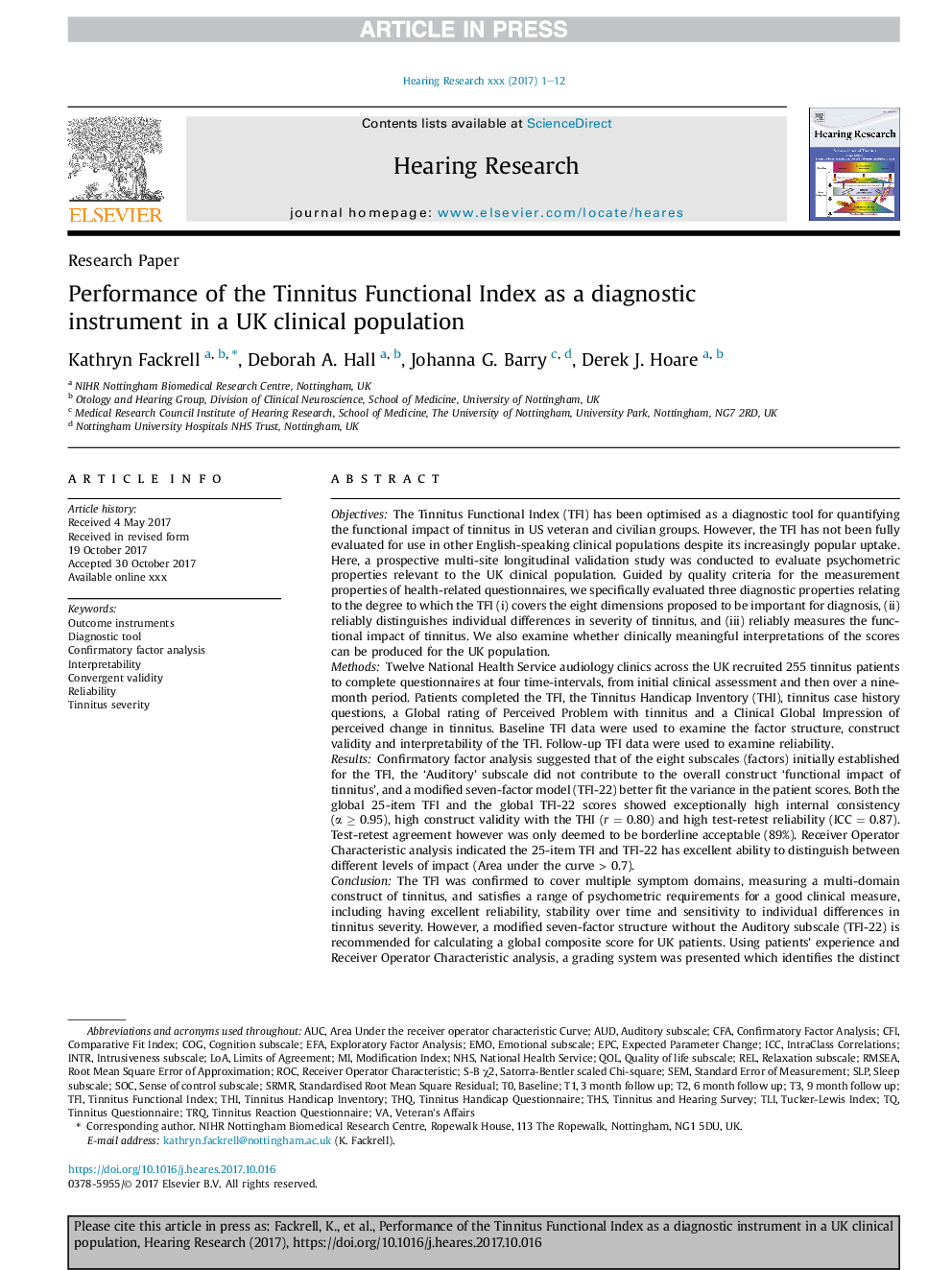| Article ID | Journal | Published Year | Pages | File Type |
|---|---|---|---|---|
| 8842430 | Hearing Research | 2018 | 12 Pages |
Abstract
The TFI was confirmed to cover multiple symptom domains, measuring a multi-domain construct of tinnitus, and satisfies a range of psychometric requirements for a good clinical measure, including having excellent reliability, stability over time and sensitivity to individual differences in tinnitus severity. However, a modified seven-factor structure without the Auditory subscale (TFI-22) is recommended for calculating a global composite score for UK patients. Using patients' experience and Receiver Operator Characteristic analysis, a grading system was presented which identifies the distinct grades of tinnitus impact in the UK clinical population that is broadly comparable to the US-based system.
Keywords
THIVeteran's AffairsIntraclass correlationsEMOSLPSRMRTHQRMSEATLINHSTFIRELQOLEFACFICFAEPCROCICCCoGAUCTHsAuddiagnostic toolOutcome instrumentsConvergent validityintrExploratory Factor AnalysisConfirmatory Factor AnalysisInterpretabilityNational Health ServicebaselineStandard error of measurementRoot mean square error of approximationSOCTucker-Lewis indexComparative Fit IndexTinnitus Handicap InventoryReliabilityLoAArea under the receiver operator characteristic curveLimits of agreementSEMreceiver operator characteristic
Related Topics
Life Sciences
Neuroscience
Sensory Systems
Authors
Kathryn Fackrell, Deborah A. Hall, Johanna G. Barry, Derek J. Hoare,
